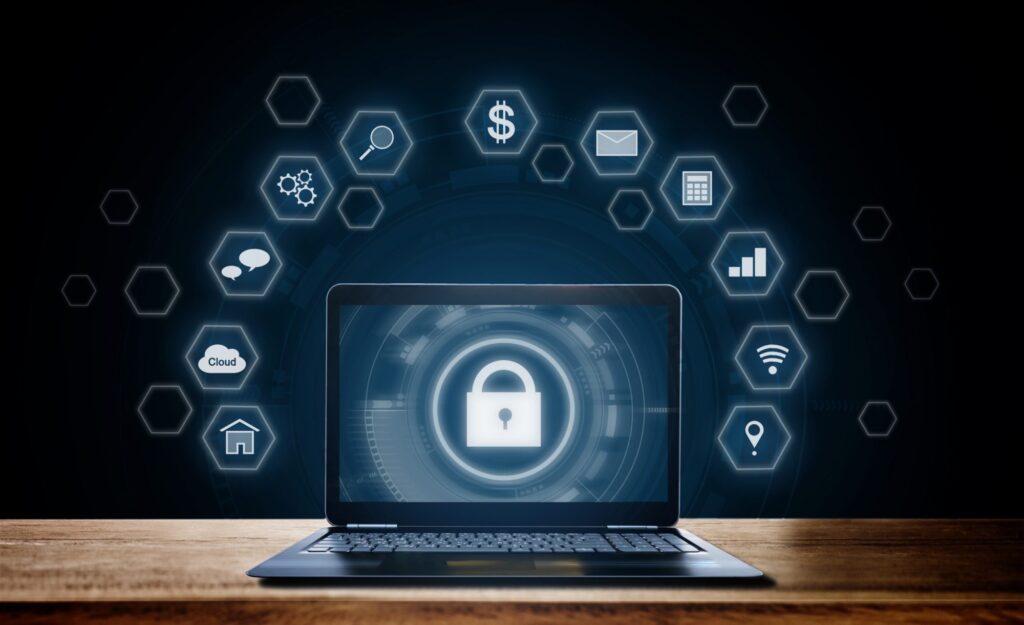In today’s digital age, safeguarding your personal information and online activities is crucial. With cyber threats constantly evolving, it’s important to stay ahead of potential risks. Here are some essential internet security tips to help protect your privacy, devices, and data:
1. Use Strong, Unique Passwords
- Tip: Create complex passwords that include a mix of upper and lowercase letters, numbers, and special characters. Avoid using easily guessable passwords like your name or “123456.”
- Why it matters: Weak or reused passwords are one of the easiest ways for hackers to access your accounts.
2. Enable Two-Factor Authentication (2FA)
- Tip: Whenever possible, enable 2FA on your accounts. This adds an extra layer of protection by requiring a second form of verification, such as a text message code or an app like Google Authenticator.
- Why it matters: Even if someone manages to steal your password, they won’t be able to access your account without the second verification step.
3. Update Your Software Regularly
- Tip: Keep your operating system, applications, antivirus software, and browsers up to date to ensure you have the latest security patches.
- Why it matters: Software vulnerabilities are often targeted by cybercriminals. Regular updates help fix these vulnerabilities.
4. Use Antivirus and Anti-Malware Software
- Tip: Install reputable antivirus and anti-malware software and keep it updated to detect and block threats.
- Why it matters: These tools can help prevent malicious software, such as viruses and ransomware, from infecting your devices.
5. Be Cautious with Public Wi-Fi
- Tip: Avoid accessing sensitive information, such as online banking or shopping, while on public Wi-Fi networks. Use a VPN (Virtual Private Network) to encrypt your data when using public networks.
- Why it matters: Public Wi-Fi networks are often unsecured, making it easier for hackers to intercept your data.
6. Monitor Your Accounts for Unusual Activity
- Tip: Regularly check your bank accounts, credit cards, and online accounts for unauthorized transactions or changes.
- Why it matters: Early detection of fraudulent activity can help prevent further damage and minimize the impact of a security breach.
7. Be Wary of Phishing Scams
- Tip: Don’t click on links or open attachments in unsolicited emails or messages. Always verify the source before responding to any request for personal information.
- Why it matters: Phishing scams often trick users into revealing their passwords or downloading malware.
8. Backup Your Data
- Tip: Regularly back up your important files to a cloud service or external hard drive.
- Why it matters: In case of data loss due to a cyberattack (like ransomware) or technical failure, you can restore your important documents and files.
9. Be Mindful of What You Share Online
- Tip: Limit the personal information you share on social media platforms and online forums. Avoid oversharing details such as your location, birthdate, or financial information.
- Why it matters: The more information cybercriminals have about you, the easier it is for them to steal your identity or launch targeted attacks.
10. Secure Your Home Network
- Tip: Use a strong password for your Wi-Fi network and enable WPA3 encryption if your router supports it. Consider setting up a guest network for visitors.
- Why it matters: An unsecured network can allow unauthorized users to access your devices and data.
11. Use Encrypted Communication Tools
- Tip: For sensitive conversations, use messaging apps that offer end-to-end encryption, such as Signal or WhatsApp.
- Why it matters: Encryption ensures that only you and the person you’re communicating with can read the messages.
12. Secure Your Devices
- Tip: Set up device passwords, PINs, or biometric locks (fingerprint/face recognition) on your smartphone, tablet, and laptop.
- Why it matters: In case your device is lost or stolen, a strong lock will prevent unauthorized access to your personal data.
13. Educate Yourself and Others
- Tip: Stay informed about the latest cybersecurity threats and share tips with family and friends to help them stay safe online.
- Why it matters: Cybersecurity is an ongoing process. Awareness is one of the best defenses against evolving threats.


